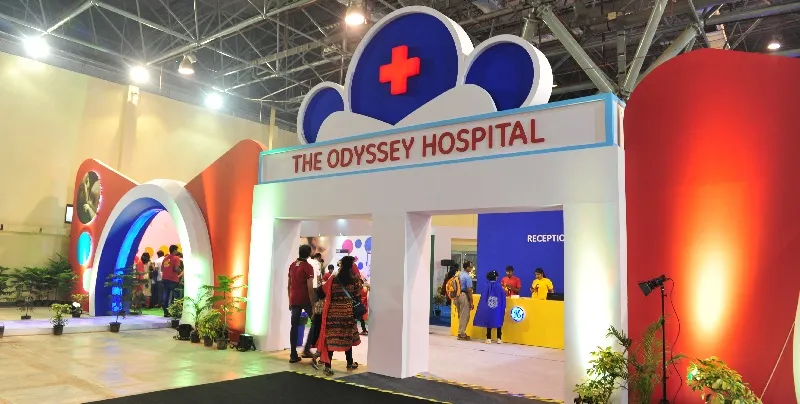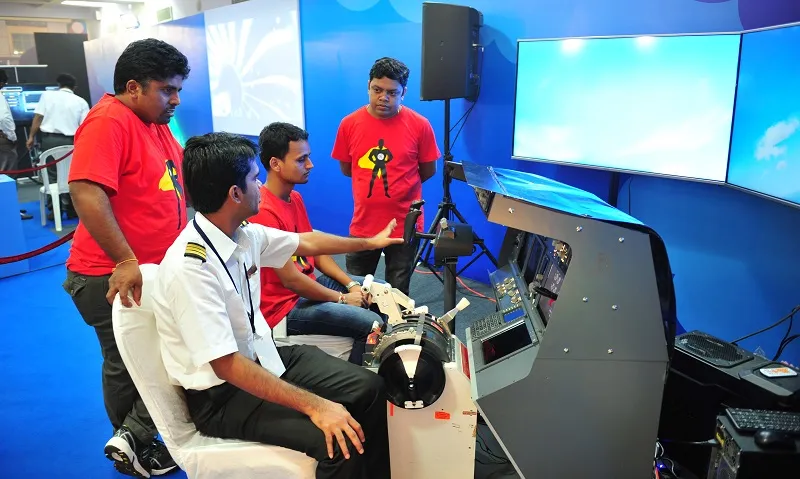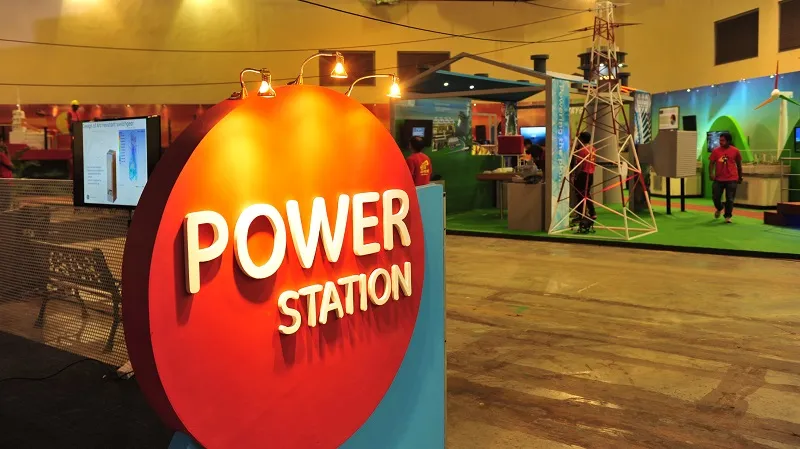How big corporations like GE are innovating, and what startups can learn from them
This article is sponsored by GE.
In the world of business, corporates and startups have always been two sides of the same coin. Although two separate entities, one cannot deny that the biggest conglomerates of the world were once startups. Whether, it was Larry Page and Sergin Brin kicking operations off from their garage or Mark Zuckerberg who coined the biggest revolution of social media in his college dorm. There is a fair amount which these two entities can learn from each other.
The General Electric’s (GE) annual carnival of innovation -Tech Mela on Saturday and Sunday presented us an opportunity to understand how startups could learn from conglomerates better.

Munesh Makhija, Vice President & Managing Director, GE India Technology Centre & Chief Technology Officer, GE India, says,
“We love how nimble startups are. They are not married to the product, but success.”
Culture
Speaking to YourStory, Sukla Chandra, General Manager, GE Global Research, adds that India is a hotbed of opportunities owing to a host of reasons. But what stands out is the curiosity fostering the culture of asking question coupled with collaboration. She says,
“It is quite exciting times to be in India where we have the world’s toughest problems in hand followed by the intellect to solve it.”
In GE, the researchers are provided with a lot of challenges. They nurture their researchers to be curious, passionate, and driven to solve problems. Moreover, the researchers are pushed to be aware as well as keep alive the bug of learning something new every day. However, she also believes that there are a couple of things which corporates like GE can learn from startups,
“Agility is something which we learn from startups. At GE, we also strive to run faster and be a step ahead in the market.”
According to Sukla, although taking risks is something startups are known for, but they might not know how to manage these risks which corporates are much experienced in.
Today, the market in India is seeing a shift towards products than services with more and more product firms coming into the scene. It is only a matter of time, according to Sukla, that the next big product would be from India. This is synonymous to their strategy of marrying hardware machinery with software through successful digitisation.
Technology
At present, GE has 5300 technologists in India, spread across four technology centres with the John F. Welch Technology Centre in Bengaluru being the largest integrated multi-disciplinary research for the company.
Showcasing the innovation, the company tries to solve some of the world’s toughest challenges.

Healthcare
The firm is specifically targeting cardiac disease, cancer, and maternal & infant care challenges. These products include mobile X-ray equipment, baby warmers, portable ECG machines, and the latest, the Revolution ACTs CT. The Revolution ACTs is the first ever CT (Computed Tomography) designed, developed, and manufactured in India. It is 40% more affordable when compared to imported previous generation 4 Slice CT – Bright Speed XL (US$ 250K vs US$ 150K). The Revolution ACTs are under Rs 1 crore.
e-Cube
e-Cube (stands for empathy, experience and economics). This is a customer co-creation space for GE that enables product teams to work closely with customers as we identify needs and work on solutions for better healthcare.
Energy
Renewables
GE engineers are developing customized wind solutions for India’s low wind regime. GE’s 1.7-103 wind turbine has been developed specifically for India’s low wind speed conditions. Its evolutionary design combines GE’s platform with rotors from the 2.x platform to provide 56% increase in swept area and 34% increase in Annual Energy Production.
Biomass gasification
GE has a technology tie-up with IISc for a biomass gasification technology, where GE provides an integrated solution of GE Gasifer & GE Gas Engine. With the Government of India estimating the availability of biomass to a potential of about 18 GW generation capacity, GE is working with MNRE on identifying potential biomass gasification projects.
9HA gas turbine
GE’s 9HA isan efficient gas turbine. The 9HA provides GE’s most cost effective conversion of fuel to power in the 50 Hz H-class industry.

What startups need to believe while thinking innovation?
Both, Munesh and Sukla advise startups to build products which have a need in the market. They both seem optimistic, explaining the coming up of what they call Reverse Innovation. Reverse Innovation quintessentially means that today innovation is coming majorly from under developed countries (areas which seek demand for technology) and are consumed by the developed ones. They suggest the following:
- Understand your market- It is very essential for startups to understand the space they function in. Unless they choose to do so, they will not be able to bring forward the disruption they plan to see in their field of work.
- Play your strengths- One should not get disillusioned by the success of other companies. They should know where their strength lies and work upon it.
- Be Collaborative
- Never lose the passion- Munesh tells us that the key lies in being resilient and never loosing hope after failure. The passion should lie in solving the problem rather than being bogged down by failure.
- Continue to learn and grow- Sukla says that at GE, they encourage their engineers and researchers to know what is happening even outside their field of work. Therefore, the firm organizes such events like the TechMela where employees can learn of the research done outside their verticals.







